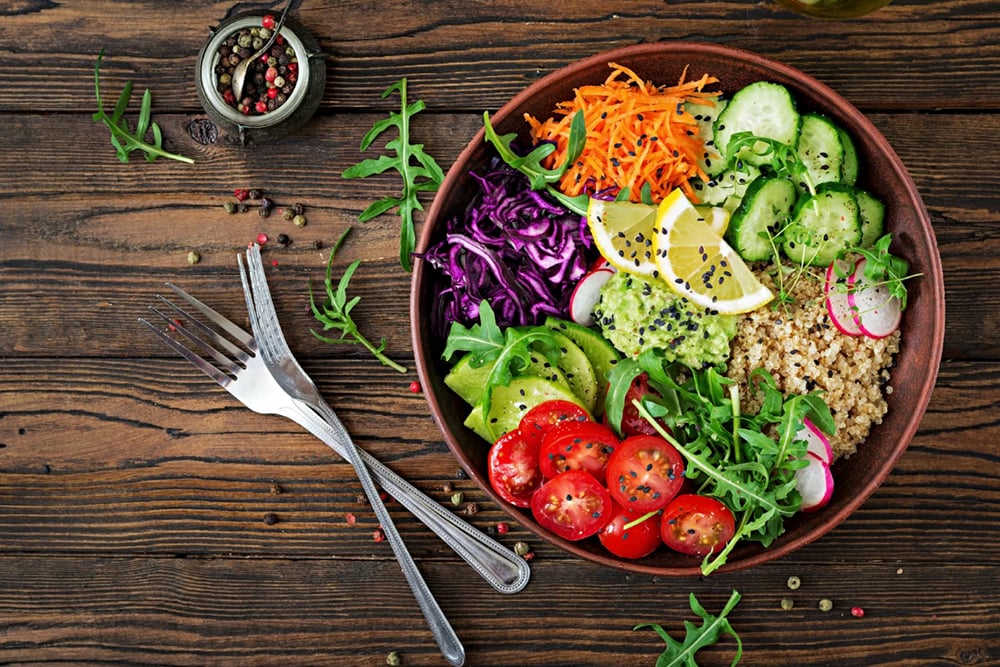
27 Jun Top Natural Anti-Inflammatory Foods To Add To Your Diet
Inflammation has been getting a lot of buzz in the health and wellness world, and for good reason. While it is vital for healing, chronic inflammation can quietly undermine your health over time. The good news? You can help manage it naturally through your daily food choices.
What is Inflammation?
Inflammation is your body’s natural defence mechanism. When you scrape your knee, catch a cold, or fight off infection, your immune system increases blood flow to the area and sends in white blood cells to fight bacteria and start repairs. This short-term (or acute) inflammation is essential for healing.
But when your body is in a constant state of low-level inflammation – triggered by poor diet, ongoing stress, toxins, lack of sleep, or even hidden food sensitivities – it can quietly contribute to chronic diseases like arthritis, heart disease, diabetes, digestive disorders, and even some cancers.
One of the most powerful ways to combat chronic inflammation is through what’s on your plate. A balanced, anti-inflammatory diet helps support your immune system, reduce oxidative stress, and keep inflammation in check.
Building a Balanced Anti-Inflammatory Diet
Here’s what to eat regularly:
Fruits and veggies: Especially leafy greens, berries, broccoli, and beetroot. They’re packed with fibre, antioxidants, and vitamins that protect your cells.
Whole grains: Brown rice, quinoa, oats, and millet offer slow-release energy and gut-loving fibre.
Healthy fats: Think olive oil, flaxseed oil, nuts, seeds, and avocado. These support brain and heart health.
Lean proteins:Legumes, eggs, fatty fish, and organic chicken help build muscle and support immunity.
Herbs and spices: Turmeric, ginger, cinnamon, and garlic have natural anti-inflammatory compounds and add flavour without the need for processed sauces.
And what to minimise? Processed foods, excess sugar, refined carbs, red and processed meats, and artificial additives and preservatives.
Anti-Inflammatory Pantry Staples from FtN
Turmeric Powder
Thanks to its active compound, curcumin, turmeric is a natural anti-inflammatory hero. For best results, pair it with black pepper to improve absorption.
Cacao Nibs
These crunchy superfoods are rich in antioxidants, flavonoids, and magnesium. Sprinkle them on porridge, blend into smoothies, or enjoy as a satisfying snack.
Raw Honey
Unprocessed, raw honey is naturally anti-inflammatory and antibacterial. Use it to sweeten tea, drizzle over oats, or add to homemade salad dressings.
Chickpeas
Packed with fibre and protein, chickpeas are blood sugar-friendly and gut-supportive. Roast them for snacking, toss into salads, or blitz into a creamy hummus.
Walnuts
Walnuts are rich in alpha-linolenic acid (ALA), a plant-based omega-3 fatty acid that helps to counter inflammation in the body. Add to your breakfast bowl or enjoy by the handful.
Garlic
Fresh or powdered, garlic helps fight viruses, bacteria, and inflammation. Rich in allicin and sulphur compounds, it’s a kitchen staple with powerful benefits.
By filling your plate with wholesome, anti-inflammatory ingredients and avoiding highly processed foods, you can take daily steps toward better health. Shop nourishing, anti-inflammatory foods at FtN and support your body’s natural healing process with every bite.



Evanne rothwell
Posted at 07:13h, 28 JuneI have erythrms nodossum – an unusual side effect of HRT – which I stopped 4 years ago. I now have almost continual sore lumps on my legs. Voltaren gel doesn’t help the pain. Anything anyone can recommend? I don’t want to go the chemical route again.
Ruth Jardine
Posted at 10:31h, 29 JuneI have a chronic disease viz:Ulcerative colitis and cannot eat fruit, green veg, seeds ,fibre, corn, wheat, spices ,Etc.All sugars: fructose, lactose and sucrose as well as artificial sweetners are a NO No!
Any advice is gratly welcomed.
Thanks,
Ruth
Kerry Haarhoff
Posted at 10:53h, 15 OctoberHi Ruth, we’re so sorry to hear about your troubles. It’s best to speak to your healthcare provider in this regard who will be able to guid eyou through a diet that is suited to your needs 🙂